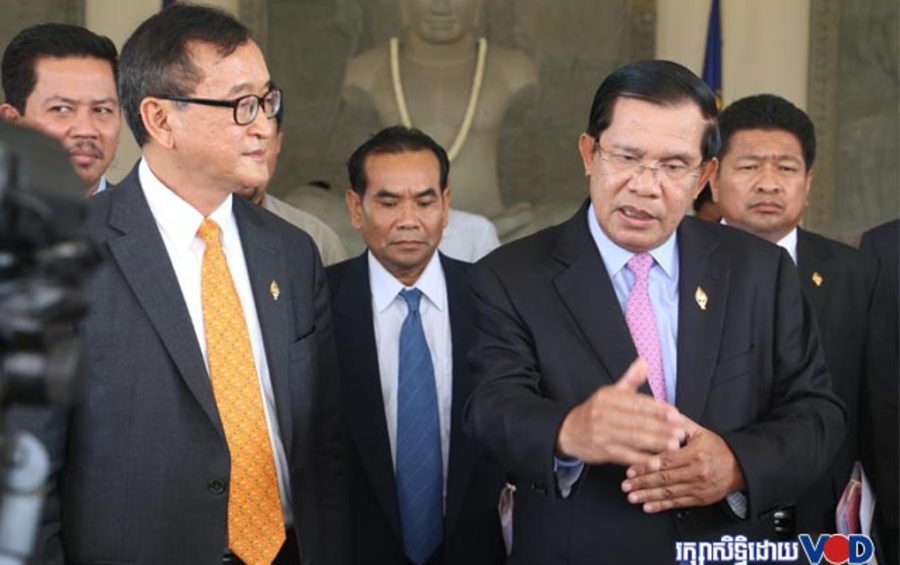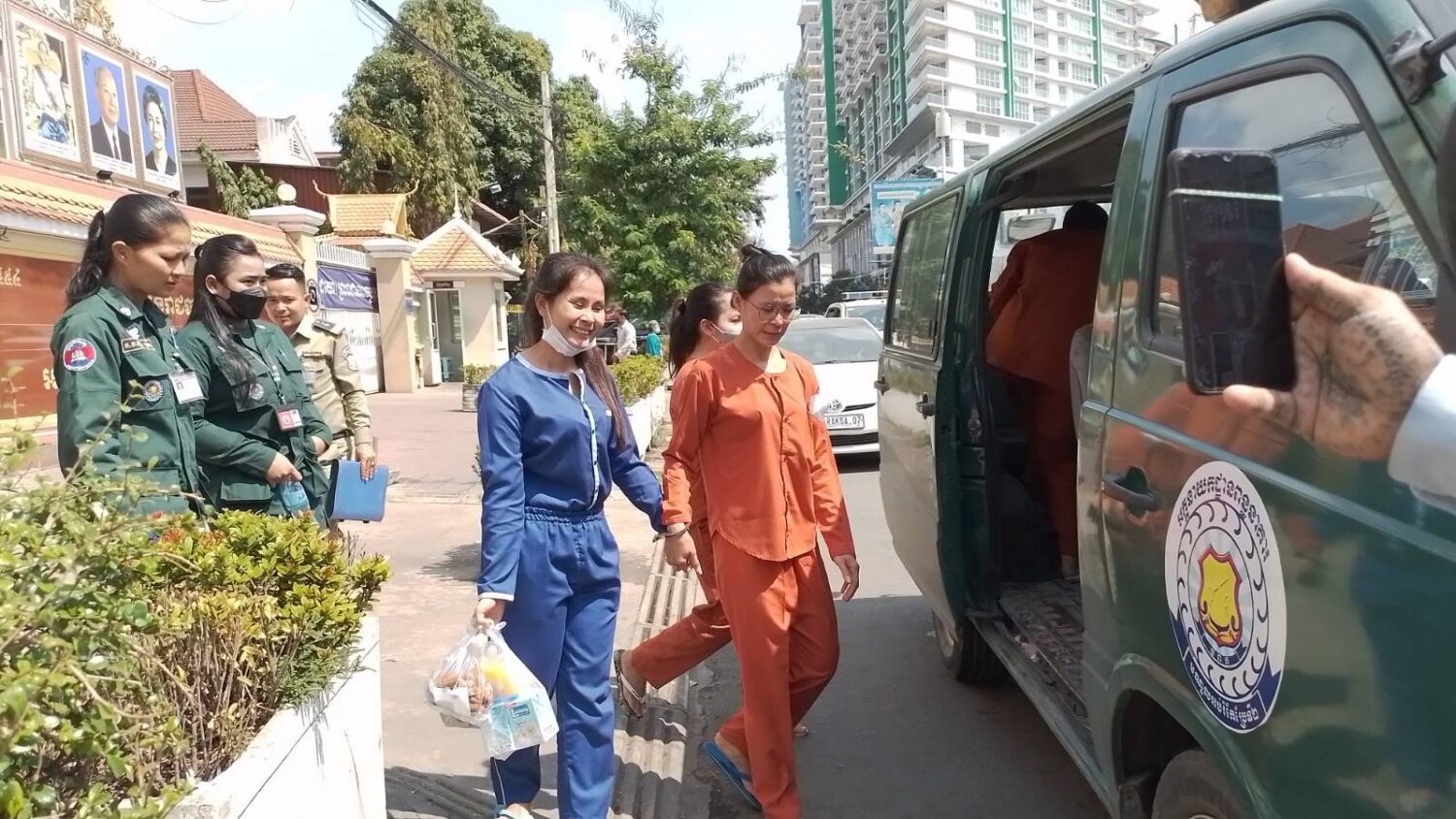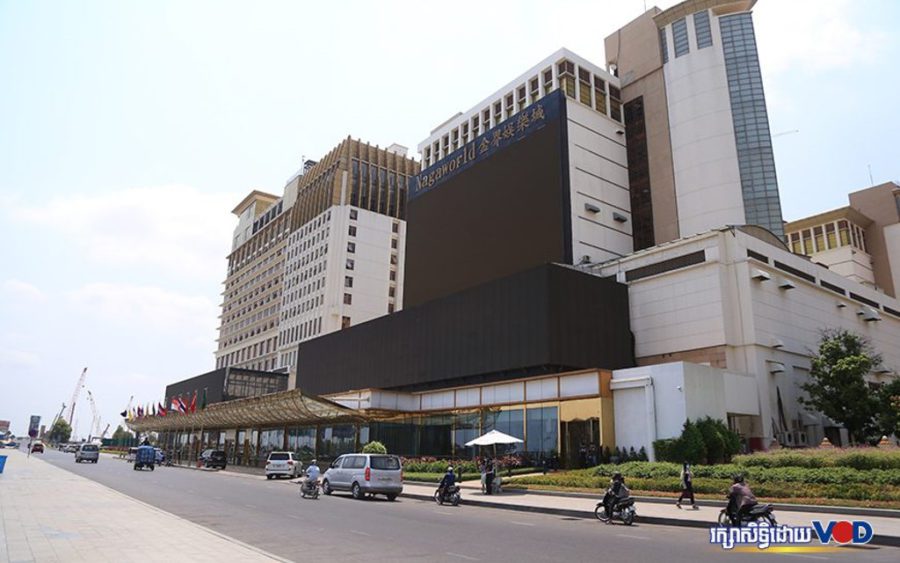Sam Rainsy lacked evidence and precision in accusing and defaming Prime Minister Hun Sen online of alleged links to prominent deaths, a French criminal court ruled this week. But the court still cleared Rainsy of libel charges, saying debate on the little investigated cases was of “major” public interest given his position as an exiled opposition leader.
In an October 10 decision, the court stated Rainsy’s claims were “considered defamatory to Hun Sen,” while also ruling they “were feeding a political debate on the use of political violence by Hun Sen government.”
“A criminal conviction would disproportionately infringe the right to freedom of expression,” the court said.
Rainsy’s lawyers Mathias Chichportich and Jessica Finelle said that their “client received the two verdicts with great emotion.”
“For more than 20 years, Sam Rainsy has been condemning the crimes perpetrated by the Cambodian regime and fighting to promote democracy,” they said.
“Forced into exile, all his political levers have been eliminated by Hun Sen who tries to silence him by all means.”
In a joint statement, Hun Sen and his son-in-law Dy Vichea’s lawyers emphasized the court’s ruling that “Sam Rainsy’s accusations were in no way supported and even less proven.”
“The court had no choice but to characterize the factual basis alleged by the defendant as ‘tenuous.’ Where in law it must be sufficient, in reality, it is nonexistent here,” Didier Leick, Luc Brossolet and Nollary Yim-Dunand wrote.
Online Accusations
The principal case of libel was brought by Hun Sen in August 2019. He filed several lawsuits for defamation in France, where Rainsy, who holds French citizenship, has lived since 2015.
The prime minister accused Rainsy of claiming in several Facebook posts that Hun Sen was responsible for the death of Hok Lundy, a former chief of the national police, and Chea Vichea, a prominent unionist.
Lundy died in a controversial helicopter accident in 2008, while Chea Vichea was murdered on Phnom Penh’s streets in 2004.
One of the disputed posts was made on Rainsy’s Facebook page on June 2, 2019. The former leader of the dissolved Cambodian National Rescue Party wrote that “Hun Sen killed Hok Lundy using a bomb placed inside his helicopter.”
A few sentences later, he added that “Hok Lundy was about to reveal the order he received from Hun Sen to murder Chea Vichea in 2004.”
While French law defines defamation as “any allegation or imputation likely to be prejudicial to the honor or consideration of an individual,” it can find exceptions when the poster is of “good faith” and their remarks are made for the “general interest.”
In its 13-page decision on Hun Sen’s case, seen by reporters, the court ruled that both murder allegations were “considered defamatory” to Hun Sen, as they are “prejudicial to the honor and reputation of the civil party [Hun Sen].”
But it added that given the use of political violence by the Hun Sen government and the shrinking of Rainsy’s freedom of expression in Cambodia, such claims made by “a long-standing political opponent” were part of “clearly a matter of major general interest in regards to the respect of human rights and fundamental freedoms” in the country.
The 17th correctional chamber of the Tribunal Judiciaire de Paris, which specializes in freedom of speech and defamation issues, estimated that Rainsy’s claims fell under the exception of good faith and general interest.
In relation to unionist Chea Vichea’s murder, the court indicated that Rainsy brought enough elements during the procedures — two Amnesty International reports about the killing and political repression published in 2004 and 2015, and an interview with the former Phnom Penh police chief, Heng Pov, published in 2006 by a French magazine — to rule that he could “reasonably formulate his conviction that Hun Sen was behind the assassination of Chea Vichea.”
Nevertheless, regarding the killing of former police chief Lundy, the court concluded that Rainsy failed to bring elements that were “precise enough to prove his hypothesis that an explosion caused the helicopter accident” that killed the former chief of police.
The accused “does not produce any attestation or expertise,” to demonstrate that “the destruction of the helicopter would be due to an explosion rather than to a fall,” the court stated.
But as Rainsy couldn’t go back to Cambodia since 2015 to pursue his investigations, the court concluded that a “criminal conviction would disproportionately infringe the right to freedom of expression.”
The court further noted as “troubling” the lack of a real investigation into Lundy’s death in Cambodia. “It lends credence to the desire to conceal the circumstances of the accident mentioned by Sam Rainsy,” the court said.
It exonerated him on his statements about both killings.
It said Rainsy’s claims were related to “killing cases that were never elucidated,” and that the “alleged implication [of Hun Sen] in the killings as being made under his orders is clearly part of a major general interest debate concerning the respect of human rights and fundamental freedoms in Cambodia.”
Second Lawsuit
In the lawsuit by Hun Sen’s son-in-law Dy Vichea, the court concluded that Rainsy’s remarks were “not precise enough to be prejudicial to his honor or consideration” — in other words overturning Vichea’s libel complaint.
The allegation at the center of the litigation was also made on June 2, 2019, when Rainsy posted on Facebook that Dy Vichea, Lundy’s son, was considering plotting against the prime minister to avenge the death of his father. Such a claim has always been strongly denied by Dy Vichea, who is the husband of Hun Sen’s daughter Hun Mana and a senior police official.
Dy Vichea and Hun Sen’s lawyers had criticized the court hearing on September 1 in Paris, saying it had turned into a “forum against Hun Sen” and that the “exhibits brought by Sam Rainsy are desperately empty.”
During a speech on October 11 at the Phnom Penh International University, Prime Minister Hun Sen thanked the French court for “rendering him justice.”
“I was satisfied with the interpretation that I was not involved in the allegations,” he said regarding the case of Lundy.
He said he would not appeal the case.













